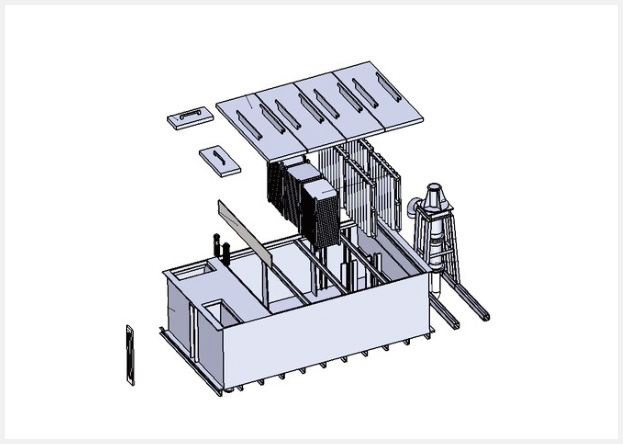Variations in feed composition can significantly impact the operation and efficiency of a mixer settler, influencing several aspects of its performance. Changes in the concentration, density, viscosity, and chemical nature of the feed components can alter the dynamics of both the mixing and settling processes.
Firstly, variations in the concentration of solutes can affect the mass transfer efficiency during the mixing stage. Higher solute concentrations might enhance the driving force for extraction, leading to faster transfer rates. However, if the concentration exceeds optimal levels, it can lead to saturation of the solvent phase, reducing the extraction efficiency and potentially causing issues like precipitate formation.
Density differences between the feed phases are crucial for effective separation. If the density difference decreases, the gravitational settling process becomes less efficient, as the phases do not separate as readily. This can lead to longer settling times and lower separation efficiency. Conversely, if the density difference is too great, it might cause excessive settling velocities, leading to potential entrainment of one phase in the other, thus reducing purity.
The viscosity of the feed phases also plays a significant role. Higher viscosity liquids tend to resist flow, resulting in slower mixing and settling. This can lead to incomplete phase separation and higher energy consumption to achieve the desired mixing intensity. Low viscosity fluids, while easier to mix, might lead to rapid settling, which can be beneficial or detrimental depending on the system’s ability to handle rapid phase separation.

Chemical composition and the presence of surfactants or emulsifiers can introduce additional complexities. Surfactants can stabilize emulsions, making phase separation more difficult and requiring additional time or energy to break. Chemical reactions between feed components or with the materials of the mixer settler can also alter the process dynamics, leading to fouling, corrosion, or unexpected phase behavior.
Furthermore, feed variability can impact the design parameters and operational settings of the mixer settler. For instance, changes in feed flow rates or composition might necessitate adjustments in the agitation speed, residence time, or temperature control to maintain optimal performance. Continuous monitoring and adaptive control systems are often necessary to handle such variations, ensuring consistent output quality and efficiency.
Variations in feed composition affect the mixer settler by altering the physical and chemical interactions within the system, impacting mass transfer, phase separation efficiency, and operational stability. Effective management of these variations requires a robust design, precise control mechanisms, and a thorough understanding of the feed properties and their influence on the extraction process.